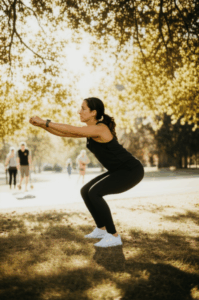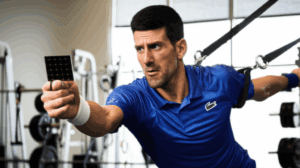As the years advance, many individuals confront the natural anxieties surrounding cognitive decline and the impact of aging on brain health. While physical exercise has long been lauded for its broad health benefits, emerging research is now shedding compelling light on the transformative power of targeted mental exercise. A recent study provides the first persuasive evidence in humans that intensive cognitive training can actively reverse a specific brain change intimately linked to the aging process, offering a beacon of hope for maintaining mental acuity well into older age.

Understanding the Age-Related Brain Change: Acetylcholine Decline
At the heart of this groundbreaking discovery lies acetylcholine, a crucial chemical messenger, or neurotransmitter, vital for various cognitive functions including attention, memory, and decision-making. Researchers have long known that levels of acetylcholine naturally decline starting in middle age, typically by about 2.5% per decade after age 40 or 45. This decline is even more pronounced in individuals with Alzheimer’s disease. The reduction in this essential neurotransmitter is a significant factor contributing to age-related cognitive shifts.

The Study’s Design: Rigorous Cognitive Training vs. Casual Gaming
Conducted by a team of researchers, including Etienne de Villers-Sidani of McGill University in Canada, the study aimed to investigate whether mental exercise could boost acetylcholine levels. The 10-week randomized clinical trial involved 92 healthy participants, all aged 65 or older.
Participants were divided into two groups:
- Intensive Cognitive Training Group: This group engaged in 30 minutes of daily mental exercises using Brain HQ, a science-backed cognitive training program. The exercises were specifically designed to push participants to their cognitive limits, targeting attention and processing speed by requiring them to remember more information in increasingly shorter periods.
- Active Control Group: The other participants spent their allocated time playing more casual video games like Solitaire and Candy Crush.
The researchers utilized a specialized PET scan to meticulously detect and measure changes in acetylcholine levels within the brain. Their primary focus was the anterior cingulate cortex, a brain region critical for decision-making and detecting salient information, though they also observed changes in other areas, including the hippocampus.

Key Findings: Turning Back the Clock on Brain Aging
The results of the study were striking. In the group that underwent intensive cognitive training, there was a significant increase in acetylcholine levels. Specifically, these participants experienced a 2.3% gain in acetylcholine binding in the anterior cingulate cortex.
A Decade’s Reversal in Brain Chemistry
While a 2.3% increase might seem modest, its significance becomes clear when juxtaposed with the typical age-related decline. As de Villers-Sidani noted, this gain is comparable to offsetting the 2.5% decrease normally observed over a decade of natural aging. In essence, the cognitive training appeared to “turn back the clock” on brain aging in this particular region by approximately 10 years.
Broader Brain Benefits
Beyond the anterior cingulate cortex, increased acetylcholine levels were also observed in other crucial brain areas, including the hippocampus, a region well-known for its pivotal role in memory formation. This suggests a more widespread positive impact of targeted mental exercise.
Comparison to Control Group
In stark contrast, participants in the active control group, who played casual games, showed no change in their acetylcholine levels. This highlights the importance of targeted, rigorous cognitive training over general mental stimulation.

Implications for Cognitive Health and Future Research
This study offers compelling human evidence for the neurochemical basis of cognitive training benefits. It suggests that specific types of mental exercise can actively upregulate brain networks that support critical functions like attention, memory, and executive function.
Potential for Delaying Cognitive Decline
Experts like Michael Hasselmo, a neuroscientist at Boston University, who was not involved in the study, found the results persuasive. He emphasized that even small increases in acetylcholine can have a “profound and notable effect” on memory and thinking in older individuals. He also pointed out that early Alzheimer’s drugs aimed to reduce symptoms by increasing acetylcholine levels, suggesting that intensive brain training could potentially achieve similar gains and help stave off cognitive decline.
Beyond Physical Exercise
While physical activity has been shown to protect brain health, increase hippocampus size, and improve memory, this study specifically focuses on the neurochemical changes induced by mental exercise. It complements existing knowledge by providing a direct link between cognitive training and a quantifiable reversal of an age-related biochemical change in the brain.
Designing Effective Interventions
The findings underscore the potential of cognitive training as a non-pharmacological intervention for supporting healthy aging. It also prompts further research into optimizing cognitive training programs, ensuring they are designed to reliably cause broad and clinically meaningful improvements in older adults. Future studies may explore the long-term effects of such interventions and their potential to delay the onset of dementia.

Practical Takeaways for Brain Health
The study reinforces the idea that an engaged mind is a healthy mind. While the study utilized a specific program, the broader message is clear: actively challenging your brain can have tangible, positive biological effects.
Strategies for Mental Engagement:
- Targeted Cognitive Training: Programs designed to improve specific cognitive skills like speed of processing and reasoning appear to be particularly beneficial.
- Lifelong Learning: Continuously engaging in novel and challenging mental activities helps build cognitive reserve and maintain brain plasticity.
- Variety in Mental Activities: Beyond specific training programs, activities like learning a new language, playing musical instruments, engaging in strategic games (chess, Sudoku), and solving complex puzzles can contribute to cognitive health.
This research offers a compelling vision for a future where maintaining a youthful brain function is not just a hope but a tangible outcome of deliberate mental engagement. The evidence suggests that, much like our bodies, our brains thrive on exercise, and the right kind of mental workout can indeed help us turn back the clock.







